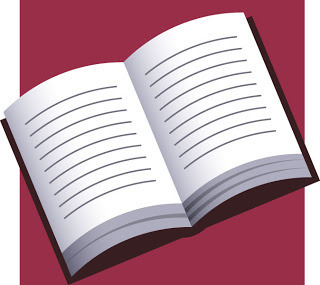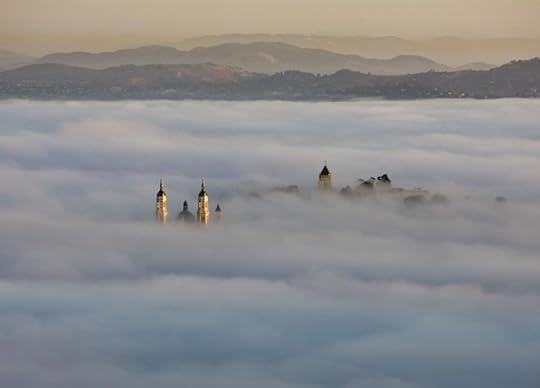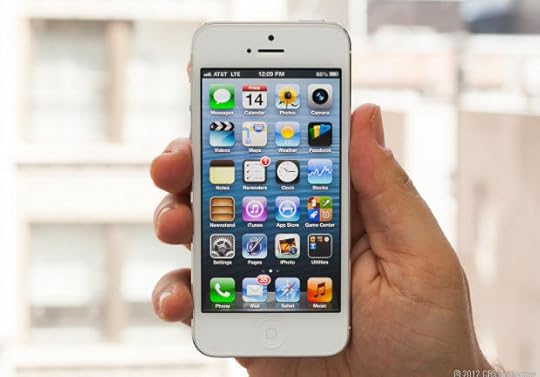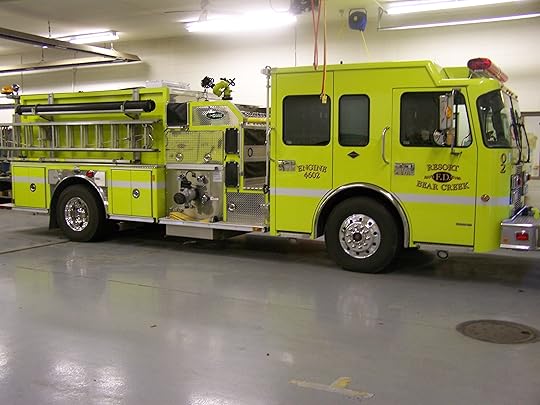S. Evan Townsend's Blog, page 128
February 26, 2013
The Future of Books
 For 500 years the book reigned supreme as the way to store, keep, move, and learn stuff. Books did two things: they made memory permanent and information democratic. You could find a book and learn. You didn't have to find an old person whose memory might be faulty. And it made knowledge democratic, not the sole domain of the cabal of the lucky few (call them the knowledge 1%) who could afford manuscripts. Books became cheap and plentiful thanks to Gutenberg. And people became knowledgeable. It broke the back of feudalism and the Catholic Church's monopoly on God, both of which ended the dark ages and led to the Renaissance. This led to the Enlightenment and finally to the liberties those of us in the West enjoy. It is telling that one of the first thing tyrants want to control is books.
For 500 years the book reigned supreme as the way to store, keep, move, and learn stuff. Books did two things: they made memory permanent and information democratic. You could find a book and learn. You didn't have to find an old person whose memory might be faulty. And it made knowledge democratic, not the sole domain of the cabal of the lucky few (call them the knowledge 1%) who could afford manuscripts. Books became cheap and plentiful thanks to Gutenberg. And people became knowledgeable. It broke the back of feudalism and the Catholic Church's monopoly on God, both of which ended the dark ages and led to the Renaissance. This led to the Enlightenment and finally to the liberties those of us in the West enjoy. It is telling that one of the first thing tyrants want to control is books. Gutenberg invented his movable-type press around 1439. Yes, there continued to be plays, dances, singing minstrels (although the news-carrying minstrel was put out of business by the book and newspapers; good thing they didn't exist to day or some government would subsidize them). But the book was the key to learning and entertainment for five centuries. Around 1900, movies began to be made for the purpose of entertainment. In the 1950s television emerged. Both of these "visual arts" competed with books. But still books, paper books, were read by millions.
Now we live in interesting times (sort of like the old Chinese curse). Two technologies are colliding: the ebook and print-on-demand. Also, I can turn on my television and "stream" many movies and televisions shows on demand. This will only get more comprehensive (I am convinced that in the future people won't buy DVDs or Blu-Rays or whatever, they will simply stream what they want to see for a subscription price or a few bucks per stream).
Print on demand technology has made it very cheap to publish a book. Rather than having to do a full offset print run of, oh, 5,000 books at $5 a book (you do the math), you can set up a book electronically, and print one to a million copies. This has cause a surge in "independent" authors publishing their own work (I plead guilty, I did that before I found a publisher).
And then there's ebooks. You can "publish" your book on the Kindle for free if you do all the formatting work. And places will do that for you for the pittance of $50 to $100. Again, this has caused a huge surge in ebooks.
So now the problem is, how do you get noticed in the crowd. But that's not what this post is about.
As with movies and other visual content, I think in the future people will own very few books. Amazon already does this with Amazon Prime. Prime members can "borrow" some Kindle books (including two of mine) for free and have them on their Kindle for a period of time. Amazon pays the author or publisher (who is often the same person) a small amount for each book "borrowed."
Who knows where books are going (some of my thoughts here)? The Kindle/ereader may be obsolete in 10 or 20 years. Maybe the direct download into your brain. But then it won't be a book, it will be a memory. But two phenomena I think are going to happen: the virtual extinction of the printed book, and no one will own any content, they will just rent it.
It's gonna be interesting. There's going to be a "shake out" in technology where some things will survive and some will go the way of Betamax. And VHS. And there might be a shake out of content providers, those who can supply the content the people will demand.
Published on February 26, 2013 08:00
February 25, 2013
Doing Research
 When I write my Adept Series novels (such as
Hammer of Thor
) that are set in the past, I do a lot of research in order to get them as historically accurate as possible (and then I make Pearl Harbor Day December 6th just to tell the reader "this is not our world"). I enjoy the research, usually. I love learning new things. I encourage all writers to do as much research as they can. Unless you lived it, you can't do too much research.
When I write my Adept Series novels (such as
Hammer of Thor
) that are set in the past, I do a lot of research in order to get them as historically accurate as possible (and then I make Pearl Harbor Day December 6th just to tell the reader "this is not our world"). I enjoy the research, usually. I love learning new things. I encourage all writers to do as much research as they can. Unless you lived it, you can't do too much research.But . . . what you can do is show off how much research you did by throwing in extraneous details not germane to the story.
Movie makers will make this mistake with sets or special effects. They want to show off how much work they put into their elaborate sets or special effects they will spend a lot of time (or so it seems) showing them off (see Star Trek: The Motion Picture ). This has become less of a problem with CGI since they are easier and cheaper to do than traditional miniatures/matte SFX.
To give you an example in my own writing. There's a scene in Hammer of Thor (this scene, in fact) where I did many hours of research. It is set in 1943 San Francisco on a foggy day. I wanted the fog to be at a level where buildings would peek out of the top and being the writer, I could set the fog at pretty much any elevation I choose (maybe I should have researched how high and low fog gets in San Francisco, but I didn't). But, what buildings would poke out of the fog, which ones would be just under it, and what else would protrude into clear sky?
This turned out to be a multiple problem problem. One: what buildings existed in 1943 San Francisco? Two: how tall were those buildings? And three: what was the elevation of the ground they were built one? Because their absolute height would depend on Two and Three. And San Francisco is a hilly city so the base of buildings could be anything from sea level to 407 feet (the elevation of Castro Hill).
The internet to the rescue! (When I think about how hard this would have been before the internet, I shudder.) There was a website called skyscrapers.com. They listed every tall building in most larger cities around the world. They listed when they were built, their address, and how high they were (and other stuff I didn't care about). Through that I was able to make a list of tall buildings that existed in San Francisco in 1943 and their height (since then, the website has put all that info behind a pay wall). Microsoft used to have a map online (still might) that was a terrain map. Using one online map to figure out the address, I would then use the terrain map to estimate the altitude of the base of the building. I set up an Excel spreadsheet (I still have it) and I listed each building, the height above ground, the elevation of its base, and added those together to get its absolute height over sea level. I then subtracted the height of the fog (450 feet) to get how far above or below the fog the building was. And I used that information in writing the scene.
Go listen to (or read) that scene. Is it obvious I did that much work? I hope not. But I wanted that scene accurate as possible. And that's what, as a writer, you should do. Make sure you do enough research to be accurate, but don't show off how much you did.
Except maybe on your blog.
Published on February 25, 2013 08:30
February 24, 2013
Sunday Six: Violence
 Today's Sunday Six comes from Chapter Eight of
Rock Killer
:
Today's Sunday Six comes from Chapter Eight of
Rock Killer
:"The problem with democracy," he said, "is compromise. There will always be those that oppose what is correct. In a democracy you have to compromise with those fools. And there can be no compromise in the protection of the Earth. We're talking about mankind's survival. Only in revolution there is no compromise and only in violence there is revolution."
Published on February 24, 2013 07:00
February 22, 2013
The Future of Novels
 I envision in the future novels will not be quite so . . . linear. Now days you read a novel from beginning to the end. But with technology and the probably demise of the paper book, this is no longer necessary or even desirable.
I envision in the future novels will not be quite so . . . linear. Now days you read a novel from beginning to the end. But with technology and the probably demise of the paper book, this is no longer necessary or even desirable.For example, novels could contain links to more information. You read a line such as (from Book of Death ) "Walter Cronkite looked especially serious on the color screen," and if you click the link you get a picture. Or a Wikipedia article on Walter Cronkite.
Or there's a link on a character's name, you click it, and you read their back story or maybe a side adventure they had. And maybe a list of all the other novels they appear in. Or reading a science fiction novel set on another planet, you could click the name of the planet and get a (fictional) encyclopedia entry for that planet, star system, etc. You could have maps of your fantasy world (or the real world) that relate to your novel. The choices are only limited by the author's imagination (and when I say "click" I probably mean "touch").
The possibilities are endless for text books, I would think.
This will mean the writer will have to come up with a lot more information and be careful what he shares in the links. In my novel Agent of Artifice , I purposely left the background of the character Maria vague. If I wrote a whole back story for her, some of the mystery of her as Vaughan's lover would have been missing. But it would have been interesting.
Published on February 22, 2013 11:47
February 21, 2013
Diet . . .
 If you've been following me on Twitter or Facebook you probably know I'm on a diet. And today was my first weigh-on and I've lost a good amount of weight. But I have a lot to go.
If you've been following me on Twitter or Facebook you probably know I'm on a diet. And today was my first weigh-on and I've lost a good amount of weight. But I have a lot to go.The interesting thing is how much mental energy it takes to not eat. Just last night I was in the kitchen and I opened the fridge (why? habit?) and saw something I would have loved to eat. But I couldn't so I didn't. But that took effort. Or maybe will power. And all the mental energy I'm expending on NOT EATING is not mental power I have for writing or other tasks. No wonder I feel exhausted at the end of the day.
This is a special diet done under a doctor's supervision and you don't eat much. And what you do eat tends to be fruits, vegetables, and bland meats like chicken (although my wife is pretty good at spicing them up). I've been on this diet for two weeks and other than two days I was out of town for RadCon and had to eat in restaurants, I have followed it nearly to the letter (I cheated a couple of times by eating about 10 calories worth of cherry tomatoes). I'm drinking between 1/2 and one gallon of water a day (and wearing a trail to the bathroom in the carpet). That sort of keeps me glued to home or places with public bathrooms.
I know, reading about some one's diet is boring. So I'll stop now. But you may get a few more of these. The doctor projects I'll be on this diet for about 8 months to get to my weight goal. That's a long time to fight eating.
Published on February 21, 2013 12:52
February 20, 2013
Hammer of Thor Reading
Published on February 20, 2013 08:00
February 19, 2013
I Don't Do Horror
 My friend, Sare, often does this "Sunday Stealing" meme on her blog. I don't because often the questions are too personal. One this week was about horror movies and I thought, no, I don't do horror.
My friend, Sare, often does this "Sunday Stealing" meme on her blog. I don't because often the questions are too personal. One this week was about horror movies and I thought, no, I don't do horror.It's not that I mind gore or frights ( Aliens is one of my favorite movies, for instance and I had no problem with Saving Private Ryan , probably the goriest movie I've ever seen). What I hate is the anticipation that something awful is going to happen. This is what I cannot stand. I call it the "Lassie syndrome."
You see, "Lassie" was a television show that was on when I was a kid (I always envision it in black and white so it must have been before we got a color TV in 1967). The basic plot of every Lassie episode was (it seemed) Timmy and Lassie go out to play (happy music), heavy foreshadowing of something bad happening (scary music), something bad happens to Timmy (falls down a well). Lassie runs back to Timmy's ranger father and barks a lot, and the father figures out that Timmy is in trouble and goes saves him. But the problem cam from the foreshadowing of something bad. When I watch a movie (or in life) anticipating something bad going to happen is to me is worse than it happening. And horror movies always build up this anticipation so that they can scare the bejeesus out of you.
For instance, in the movie Walk the Line (about Johnny Cash), at the beginning his older brother is sawing wood with a huge circular saw and you just know that something bad is going to happen. And I hated it. I nearly turned off the movie at that point. But I didn't.
So that's why I don't do horror.
Published on February 19, 2013 08:00
February 18, 2013
RadCon After Action Report
So, I spent Friday and Saturday at RadCon science fiction and fantasy convention in Pasco, Washington. I've never been to one before and this was pretty close to what I expected. There were a lot of people in costume and some cosplay cuties but there were also just normal folk (and some women who desperately needed to wear more). There was a lot of people wearing furry tails. I asked one the significance (he was also wearing an Umbrella Corporation T-shirt) and he said the tail was just because it was cool.
I found it funny when the "Code of Conduct" started with "Don't be a pinhead" and then stated, "RadCon recommends that everyone follow the 3-2-1 rule. Everyday, aim to get three hours of sleep, 2 solid meals and 1 shower."
I also saw the biggest dog I've ever seen (an Irish Wolfhound that was probably almost four feet at the shoulders). My childhood fear of large dogs was barely held in check.
I did a reading and was disappointed that only one person I didn't know (and my wife had recruited her) showed up. That was Friday. Saturday I was on three panels. Now I assumed the people doing the panels were like me, a "Pro" (a writer who convinced the con organizers that he was worth letting in free and being on panels). So I show up for my second panel about asteroid mining (since I wrote the book) and the two other panelists are scientists who actually know what the heck they are talking about (so glad I studied for that panel). I think I may have had a deer-in-the-headlights look on my face. But I think I held my own.
Then I go to my next panel on mixing genres. Thought the other three panelists would be writers like me. Well, one didn't show up, but the other two were best-selling fantasy author Tanya Huff and best-selling science fiction writer John Dalmas. Talk about deer in the headlights! Again, I think I held my own and Ms. Huff was very gracious to me and allowed me to promote and talk about my books.
I also handed out maybe a hundred bookmarks with my website on them.
All in all it was an amazing experience and I'm going back next year! Ms. Huff said this is one of the biggest "cons" she goes to. Also seems to be the easiest one locally to con into letting you be a pro.
I found it funny when the "Code of Conduct" started with "Don't be a pinhead" and then stated, "RadCon recommends that everyone follow the 3-2-1 rule. Everyday, aim to get three hours of sleep, 2 solid meals and 1 shower."
I also saw the biggest dog I've ever seen (an Irish Wolfhound that was probably almost four feet at the shoulders). My childhood fear of large dogs was barely held in check.
I did a reading and was disappointed that only one person I didn't know (and my wife had recruited her) showed up. That was Friday. Saturday I was on three panels. Now I assumed the people doing the panels were like me, a "Pro" (a writer who convinced the con organizers that he was worth letting in free and being on panels). So I show up for my second panel about asteroid mining (since I wrote the book) and the two other panelists are scientists who actually know what the heck they are talking about (so glad I studied for that panel). I think I may have had a deer-in-the-headlights look on my face. But I think I held my own.
Then I go to my next panel on mixing genres. Thought the other three panelists would be writers like me. Well, one didn't show up, but the other two were best-selling fantasy author Tanya Huff and best-selling science fiction writer John Dalmas. Talk about deer in the headlights! Again, I think I held my own and Ms. Huff was very gracious to me and allowed me to promote and talk about my books.
I also handed out maybe a hundred bookmarks with my website on them.
All in all it was an amazing experience and I'm going back next year! Ms. Huff said this is one of the biggest "cons" she goes to. Also seems to be the easiest one locally to con into letting you be a pro.
Published on February 18, 2013 08:00
February 17, 2013
Sunday Six: Constant Acceleration
Today's Sunday Six comes from Chapter Seven of
Rock Killer
:
 The Kyushu was an old ship. It was roughly bullet shaped, a hundred meters in diameter and 200 meters long. About seven years before, she'd been one of the first ships with the constant acceleration drives. The power source was a tokamak fusion reactor, cooled by vaporizing lithium. The lithium plasma was used by an MHD generator to produce electricity that the Masuka drives turned into thrust. Before the diminutive Dr. Masuka invented his drive, ships had to get around the solar system via painfully slow Hohmann "low energy" orbits.
The Kyushu was an old ship. It was roughly bullet shaped, a hundred meters in diameter and 200 meters long. About seven years before, she'd been one of the first ships with the constant acceleration drives. The power source was a tokamak fusion reactor, cooled by vaporizing lithium. The lithium plasma was used by an MHD generator to produce electricity that the Masuka drives turned into thrust. Before the diminutive Dr. Masuka invented his drive, ships had to get around the solar system via painfully slow Hohmann "low energy" orbits.
 The Kyushu was an old ship. It was roughly bullet shaped, a hundred meters in diameter and 200 meters long. About seven years before, she'd been one of the first ships with the constant acceleration drives. The power source was a tokamak fusion reactor, cooled by vaporizing lithium. The lithium plasma was used by an MHD generator to produce electricity that the Masuka drives turned into thrust. Before the diminutive Dr. Masuka invented his drive, ships had to get around the solar system via painfully slow Hohmann "low energy" orbits.
The Kyushu was an old ship. It was roughly bullet shaped, a hundred meters in diameter and 200 meters long. About seven years before, she'd been one of the first ships with the constant acceleration drives. The power source was a tokamak fusion reactor, cooled by vaporizing lithium. The lithium plasma was used by an MHD generator to produce electricity that the Masuka drives turned into thrust. Before the diminutive Dr. Masuka invented his drive, ships had to get around the solar system via painfully slow Hohmann "low energy" orbits.
Published on February 17, 2013 07:00
February 14, 2013
Things That Would Make Life Easier
(This is my 100th post on this blog!)
My friend Sare occasionally does "Thursday Thirteen" on her blog. So I thought I'd do "Thirteen things that would make life easier and better" in no particular order (or the order I think of them).

1) When I'm using the stopwatch on my iPhone, I don't want it to autolock after three minutes because often I'm timing things that last longer than three minutes.
2) There ought to be a way to wirelessly recharge your cell phone automatically. You walk into your house and even though the phone is still in your pocket, it recharges. Radio waves are energy so this energy could be used. I think Tesla had something like that for transmitting electricity. Of course you'd want to have it so it only recharged the phones in the house, not some random visitor (or a guy sitting at the curb in his car). So it could be secure like WiFi.
3) All cars should have solar panels on the roof to run a fan/cooling device so when you get in the car in the summer it's not a million degrees inside. A thermostat can make sure this doesn't happen when temps are below, say 45 degrees F. (Although my old Camaro heats up even in cool weather if the sun is shining.)

4) Police cars engaged in speed/traffic enforcement should all be that ugly green color some fire departments paint their trucks. Oh, and have a big flag on the top with a flashing light at the end.
5) All speed limits should be about 10 mph faster than they are now, except residential streets and school zones and maybe that road in Texas that's now at 80 mph.
6) DVRs should have a "catch up" feature where they play back the program at about 1.25 times normal speed, with sound, so you can catch up to live TV. This would be helpful if you come in late to a sporting event.
7) Movie theaters should offer a "trailer-less" showing at least once a day. Charge an extra buck for it. (Last movie I went to they had 20 minutes of trailers and ads!)
8) Movie theaters should charge more for opening nights of big films. This would reduce the number of people who want to see it on opening night and mean you don't have to wait in line for two hours to see a two hour movie. (That two hour wait in is a cost the buyer pays but the seller doesn't recover. It is an inefficiency in the economy.)
9) Amusement Parks should sell "Golden" passes that allow you to take a shorter line for the popular rides. They can charge more for this than regular admission. Some people would pay for this (I probably would). (Disney's free "Fast Pass" system is pretty good, maybe they could sell a "Always Fast Pass" admission.)
10) Restaurants that are popular yet don't take reservations (like many casual dining restaurants) should institute a policy that if the waiting time is more than 10 minutes, customers have to pay $1 per minute of wait time. This would increase the costs of waiting, perhaps making some people go somewhere else and thus reducing wait times ( doubt many people would shell out $40 to eat at Outback). It would also make a little money for the restaurant (see #8).
11) Airlines should auction off empty first-class seats to coach customers. They could set the minimum bid at the extra cost of serving a first-class customer. An empty first-class seat is revenue lost and selling it for even $20 (on top of the price of a coach ticket) might be better than having it empty. (Do you notice most of these are economic?)
12) We desperately need diet and exercise in a pill. The wealth the inventor would earn would make Bill Gates look poor.
13) Speaking of pills, why can't our pills come in liquid form, so they are easily swallowed. Might takes awful, but you could at least get them down without them dissolving on your tongue (and tasking awful in the process).
UPDATE: And 14) because I just thought of this: take a picture with your cell phone's camera of a written down or printed number (like on a business card) and then be able dial it, put it in contacts, etc. And addresses, be able to put in contacts or map/get directions to.
UPDATE2: And emails on #14!
My friend Sare occasionally does "Thursday Thirteen" on her blog. So I thought I'd do "Thirteen things that would make life easier and better" in no particular order (or the order I think of them).

1) When I'm using the stopwatch on my iPhone, I don't want it to autolock after three minutes because often I'm timing things that last longer than three minutes.
2) There ought to be a way to wirelessly recharge your cell phone automatically. You walk into your house and even though the phone is still in your pocket, it recharges. Radio waves are energy so this energy could be used. I think Tesla had something like that for transmitting electricity. Of course you'd want to have it so it only recharged the phones in the house, not some random visitor (or a guy sitting at the curb in his car). So it could be secure like WiFi.
3) All cars should have solar panels on the roof to run a fan/cooling device so when you get in the car in the summer it's not a million degrees inside. A thermostat can make sure this doesn't happen when temps are below, say 45 degrees F. (Although my old Camaro heats up even in cool weather if the sun is shining.)

4) Police cars engaged in speed/traffic enforcement should all be that ugly green color some fire departments paint their trucks. Oh, and have a big flag on the top with a flashing light at the end.
5) All speed limits should be about 10 mph faster than they are now, except residential streets and school zones and maybe that road in Texas that's now at 80 mph.
6) DVRs should have a "catch up" feature where they play back the program at about 1.25 times normal speed, with sound, so you can catch up to live TV. This would be helpful if you come in late to a sporting event.
7) Movie theaters should offer a "trailer-less" showing at least once a day. Charge an extra buck for it. (Last movie I went to they had 20 minutes of trailers and ads!)
8) Movie theaters should charge more for opening nights of big films. This would reduce the number of people who want to see it on opening night and mean you don't have to wait in line for two hours to see a two hour movie. (That two hour wait in is a cost the buyer pays but the seller doesn't recover. It is an inefficiency in the economy.)
9) Amusement Parks should sell "Golden" passes that allow you to take a shorter line for the popular rides. They can charge more for this than regular admission. Some people would pay for this (I probably would). (Disney's free "Fast Pass" system is pretty good, maybe they could sell a "Always Fast Pass" admission.)
10) Restaurants that are popular yet don't take reservations (like many casual dining restaurants) should institute a policy that if the waiting time is more than 10 minutes, customers have to pay $1 per minute of wait time. This would increase the costs of waiting, perhaps making some people go somewhere else and thus reducing wait times ( doubt many people would shell out $40 to eat at Outback). It would also make a little money for the restaurant (see #8).
11) Airlines should auction off empty first-class seats to coach customers. They could set the minimum bid at the extra cost of serving a first-class customer. An empty first-class seat is revenue lost and selling it for even $20 (on top of the price of a coach ticket) might be better than having it empty. (Do you notice most of these are economic?)
12) We desperately need diet and exercise in a pill. The wealth the inventor would earn would make Bill Gates look poor.
13) Speaking of pills, why can't our pills come in liquid form, so they are easily swallowed. Might takes awful, but you could at least get them down without them dissolving on your tongue (and tasking awful in the process).
UPDATE: And 14) because I just thought of this: take a picture with your cell phone's camera of a written down or printed number (like on a business card) and then be able dial it, put it in contacts, etc. And addresses, be able to put in contacts or map/get directions to.
UPDATE2: And emails on #14!
Published on February 14, 2013 12:04



